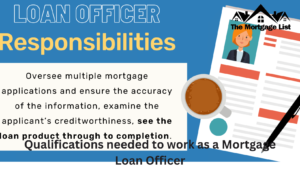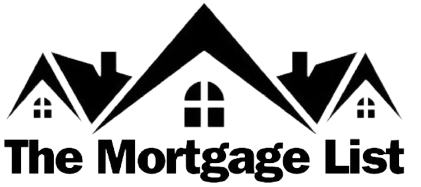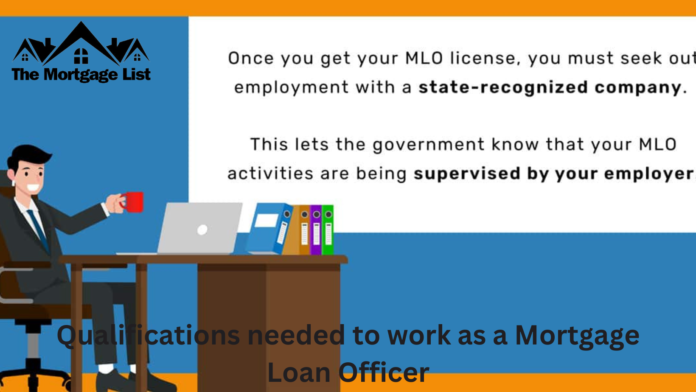Introduction to Mortgage Loan Officer Role
Becoming a mortgage loan officer can be an exciting career path for those interested in finance, real estate, and helping people achieve their homeownership dreams. However, it requires a specific set of qualifications and skills to excel in this role. In this article, we’ll delve into the qualifications needed to work as a mortgage loan officer, covering everything from education to experience and beyond.
Educational Qualifications
Bachelor’s Degree in Finance or Related Field
A solid educational foundation is essential for aspiring mortgage loan officers. While a specific degree in finance or a related field isn’t always mandatory, it can provide valuable knowledge about financial concepts, accounting principles, and lending practices.
Licensing Requirements
In addition to a degree, mortgage loan officers must fulfill licensing requirements set by regulatory authorities. These requirements vary by state and typically involve completing pre-licensing education courses and passing a state exam.
Skills and Competencies
Analytical Skills
Mortgage loan officers need strong analytical skills to assess clients’ financial situations, evaluate creditworthiness, and determine suitable loan options. Being able to analyze complex financial data and make informed decisions is crucial in this role.
Communication Skills
Effective communication is key when working as a mortgage loan officer. From explaining loan terms to clients to negotiating with lenders and real estate agents, clear and concise communication is essential for building trust and facilitating successful transactions.
Sales Skills
Mortgage loan officers are essentially sales professionals, tasked with convincing clients to choose their lending services. Strong sales skills, including persuasion, relationship building, and closing techniques, are vital for success in this competitive field.

Experience Requirements
Banking or Finance Experience
Prior experience in banking, finance, or related fields can greatly enhance a candidate’s suitability for a mortgage loan officer role. Experience in roles such as bank teller, financial advisor, or loan processor provides valuable insights into the lending process and customer interactions.
Customer Service Experience
Exceptional customer service skills are a must for mortgage loan officers. Whether guiding clients through the application process or addressing their concerns and inquiries, providing excellent service is crucial for client satisfaction and retention.
Regulatory Knowledge
Understanding of Mortgage Laws and Regulations
Mortgage loan officers must have a thorough understanding of mortgage laws and regulations to ensure compliance and ethical conduct. This includes knowledge of federal and state lending laws, fair housing regulations, and consumer protection statutes.
Compliance Training
Staying up-to-date with regulatory changes and undergoing regular compliance training is essential for mortgage loan officers. Compliance violations can lead to severe penalties and damage to one’s reputation, emphasizing the importance of ongoing education in this area.
Professional Certifications
Mortgage Loan Originator (MLO) License
Obtaining a Mortgage Loan Originator (MLO) license is a fundamental requirement for practicing as a mortgage loan officer in many states. This license demonstrates competency in mortgage lending and adherence to industry standards.
Certified Mortgage Planning Specialist (CMPS)
Earning additional certifications, such as the Certified Mortgage Planning Specialist (CMPS) designation, can further validate a mortgage loan officer’s expertise and commitment to professional development. These certifications may require coursework, exams, and continuing education.
On-the-Job Training
Shadowing Experienced Loan Officers
Newly licensed mortgage loan officers often undergo on-the-job training by shadowing experienced professionals. This hands-on experience allows them to learn best practices, gain insights into the industry, and refine their skills under mentorship.
Internships or Entry-Level Positions
Internships or entry-level positions at mortgage firms, banks, or credit unions provide valuable real-world experience for aspiring loan officers. These opportunities allow individuals to familiarize themselves with loan processing procedures, customer interactions, and industry regulations.

Networking and Relationship Building
Establishing Connections in the Industry
Networking is essential for mortgage loan officers to build relationships with real estate agents, builders, financial advisors, and other industry professionals. Strong networks can generate referrals and leads, contributing to business growth and success.
Building Referral Networks
Developing referral networks with satisfied clients and professional contacts can significantly impact a mortgage loan officer’s success. Positive word-of-mouth recommendations and referrals can result in a steady stream of business opportunities.
Technology Proficiency
Mortgage Origination Software
Proficiency in mortgage origination software is crucial for efficiently processing loan applications, managing client information, and generating documentation. Familiarity with industry-standard software enhances productivity and enables seamless communication with lenders and clients.
Customer Relationship Management (CRM) Systems
Utilizing customer relationship management (CRM) systems helps mortgage loan officers track client interactions, manage leads, and nurture relationships over time. These tools streamline communication and enable personalized engagement, ultimately improving client satisfaction and retention.
Continuing Education
Staying Updated on Industry Trends
The mortgage market is always changing, with new rules, goods, and innovations appearing on a regular basis. For mortgage loan officers to be competitive and provide good client service, they need to be up to date on market circumstances, consumer preferences, and industry trends.
Pursuing Advanced Certifications
Continuing education and pursuing advanced certifications demonstrate a mortgage loan officer’s commitment to professional growth and excellence. Specialized certifications in areas such as mortgage underwriting, risk management, or financial planning can enhance credibility and career opportunities.

Conclusion
Becoming a successful mortgage loan officer requires a combination of education, skills, experience, and ongoing professional development. By acquiring the necessary qualifications and continuously honing their expertise, individuals can thrive in this rewarding and dynamic field, helping clients achieve their homeownership goals.
FAQs
1. Do I need a specific degree to become a mortgage loan officer?
- A degree in finance or a similar discipline is not usually required, although it is advantageous. Nonetheless, the majority of firms favor applicants who have completed higher education.
2. How long does it take to obtain a Mortgage Loan Originator (MLO) license?
- The process varies by state but typically involves completing pre-licensing education courses and passing a state exam. This process can take several
Read More:>

